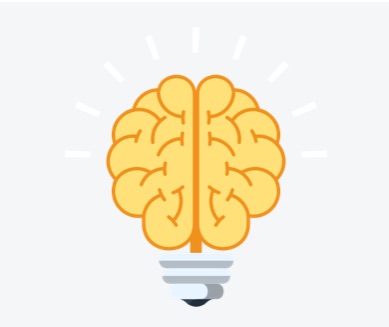
When it comes to website optimization, even global enterprises with dedicated web teams can unintentionally trigger adverse behavior from visitors to their site if they don’t take psychology into account.
All day long, humans are trapped in an endless tussle for control of their surroundings, from the big things to minutiae. Since our days dwelling in caves, we crave control because it offers comfort. When things feel out of our control, our bodies immediately respond, with our deep subconscious flooding us with tension until we can remedy things.
This neurological response is the same regardless of the loss-of-control trigger, so if you lose control of a relationship or the buzz of your phone makes you lose control of a sweet silent moment as you laze about casually on a weekend, you’re likely to react in the same way.
Human instinct
For businesses with websites, understanding the human need for control offers a powerful tool for enhancing customer experience. In my role as a web psychologist for ClickTale, I recently helped one of the world’s largest and most influential news organizations analyze customer behavior on their website. The news organization was trying to push video content by having it load automatically on their homepage.
The video in question was slick and well designed, and its content was interesting. But there was one aspect the organization hadn’t considered – when a visitor comes to a website planning to read the news but sound and video suddenly jump out at them, the effect is jarring. It makes readers feel they have lost control.
What we found when we analyzed the page was that visitors tended to always click on the “pause” button as soon as they encountered the video. Doing so put the control of their experience back into their own hands.
The extensive efforts to push the content using on-load video had instead created the opposite reaction: it increased the chances that visitors would not watch the video at all and actually encouraged them to read the text located below the video instead.
This response can be explained by a psychological effect called the expectation factor. People come into situations expecting to receive something specific. Expectation factors apply to all aspects of life. You go to a job interview and expect the hiring manager to ask certain questions. You go to a birthday party and expect to eat certain foods and have a certain level of fun.
Managing expectations
It’s important for businesses to understand that, when customers visit their websites, the expectation factor is also very much at play. If you present your visitors with an experience that strays too much from what they anticipate, they will end up feeling a loss of control and will perform actions – clicking pause on a video, perhaps, or in the more extreme, exiting the page entirely – in order to return the feeling of control to their hands.
In order to manage this tussle over control between websites and visitors, it’s important to also understand the power of perceived control. Visitors like to think they are in charge of their actions. When a video plays without visitors initiating any interaction, they feel the opposite.
If a visitor feels that a website is trying to “sell” them something, or push them into viewing certain content without permission, they will resist by trying to take back the interaction and intentionally avoid that content. This occurs deep within our subconscious and triggers biochemical prods that are part of a primitive neurological mechanism.
Why do we react so strongly to encountering a video playing automatically on a website or to a cell phone alarm going off in the middle of a quiet afternoon? The reasons, it turns out, are rooted in our deepest prehistoric history.
The first humans had to be constantly on alert for changes in their environment, because unexpected sounds or sights meant only one thing: danger. When we click on a website hoping to read an article and instead are confronted with a loud, bright video, the automatic response is not so different from that our prehistoric ancestors, walking in the forest and stumbling upon a bear or a saber-toothed hyena.
Our body reacts first to eliminate the stressor in our midst and then, because we have an inner need to make sure our thoughts and behaviors are consistent, we then subconsciously rationalize our decision.
“If I stopped the video, it must not be interesting,” you might think to yourself. By forcing the video upon its visitors instead of letting them choose to click “play,” the news organization significantly decreased the chances readers would have any interest in watching it.
Stress response
Automatic videos are not the only online situations that promote stress responses. Visitors also start to feel control slipping from their hands when they encounter very long web pages, especially those that require endless scrolling.
I’ve witnessed visitors start scrolling along a page and suddenly realize they don’t know where they are anymore. It’s a thoroughly modern phenomenon but it evokes the same fear triggers that our ancestors felt when they were in a foreign environment and suddenly didn’t know how far they were from home.
Our prehistoric ancestors used trail markers in order to not get lost. And websites that understand human psychology can also do something similar, employing sticky navigation – website menus that move with the page as the visitor scrolls, “sticking” in place and always remaining visible – to keep visitors feeling in control.
From an evolutionary standpoint, if we are in control of our environment, we have a better chance of survival. While our behavior adapts to changes all the time, our evolutionary roots continue to affect us.
Even though the threats have become less obvious and sometimes are not even real, our body will generate the same autonomic reactions in response to perceived or imagined threats. The need for control is rooted deeply within us and has a subconscious impact on our online behavior too.
Read Next: Why your brain wants to check Facebook every 31 seconds – and how you can stop it
Image credit: Shutterstock
Get the TNW newsletter
Get the most important tech news in your inbox each week.








